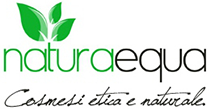
NaturaEqua Animal testing and cosmetics: some clarifications Animal testing: Clarifications
Cosmetics and animal testing: some clarifications
The issue of animal testing in the world of cosmetics has been widely highlighted in the media.
Unipro - the Italian Association of Cosmetic Companies - has clarified a number of concepts that have been exploited over time.
Can animal tests be carried out on cosmetic products?
Europe and Italy banned animal testing for cosmetics in 2004. However, the cosmetics industry has not tested finished products on animals since the 1980s.
Can raw materials be tested on animals?
Since March 2009, animal testing for cosmetic purposes has been banned throughout Europe: no more animals are used for safety testing of cosmetic ingredients.
Can cosmetics containing ingredients tested on animals be sold?
Also since March 2009, it is forbidden to sell cosmetic products in Europe that contain ingredients tested on animals.
Are there any exceptions?
Not anymore. The 2009 ban excluded certain long-term toxicity studies for raw materials, but since March 2013, no cosmetic products containing ingredients tested on animals can be sold in Europe. However, ingredients tested before this date will not be outlawed.
What tests were carried out?
Some of the tests carried out before the European laws came into force were:
- repeated and chronic toxicity, i.e. testing with low doses of the test substance over long periods of time or over the lifetime of the animal
- reproductive toxicity or teratogenicity, which is testing for the ability of the substance to create defects in offspring when administered to a pregnant animal;
- toxicokinetics - tests to understand how the substance reaches cells and organs, causing biological damage.
What alternative methods have been adopted?
There are still no official alternative methods covering all types of tests necessary for the marketing of a new ingredient.
Therefore, the cosmetics industry is forced to engage in research and development of new methods, since if the data available to them for an ingredient are evaluated negatively for consumer safety, then that ingredient cannot be used.
In addition, testing for cosmetics is also necessary for all other fields, so once an animal-free method has been validated for the cosmetics industry, it must also be used in other sectors.
Is it true that cosmetics were the cause of most animal testing in Europe?
Unipro, the Italian Association of Cosmetic Companies, reassures all consumers by specifying that animals used in tests attributable to the cosmetics industry accounted for only 0.016% of the total number of animals used for scientific and safety tests in the European Union in 2008 - the last year of testing carried out (source: 2010 European Commission Report on 2008 data).
Can we be sure that ingredients made after 2013 will never be used in cosmetics sold in the EU?
Unfortunately not, and the European Commission has stated this explicitly.
It is true that there is a complete ban on animal testing of ingredients, but only if the ingredients have been created specifically for use in cosmetics. For example, ingredients used in detergents and cleaning products can be tested on animals.
In addition, if an ingredient is tested on animals as a component of a non-cosmetic product, it can still be used in cosmetic products.
In practice, if a new substance is created for use as a food additive, it can still be tested on animals and still be used in cosmetics.
Can companies that sell worldwide test on animals?
A company that manufactures and sells worldwide cannot test the new ingredients it develops on animals if it wants to sell them in Europe. However, it can do so for all products sold outside the European Union.
For example, if a company decides to sell in China, it can even test the finished product on animals.
Only companies that have adhered to the cruelty-free standard are safe in this respect.
Here you can read which Italian companies have adhered to this standard. Of course, we at naturaequa are part of this standard.
So what does ’No animal testing’ mean?
You could say that it is often just a matter of image or marketing.
As we have seen, finished products and individual raw materials - apart from borderline cases - cannot by law be tested on animals.
As required by law, we at Naturaequa do not test or commission any of our raw materials or end products on animals. For this reason, we have asked all our suppliers for specific documentation about their animal testing in order to obtain cruelty-free certification.
Sign up for Email
You will periodically receive information from Naturaequa and you will be able to know all our initiatives, events and information


